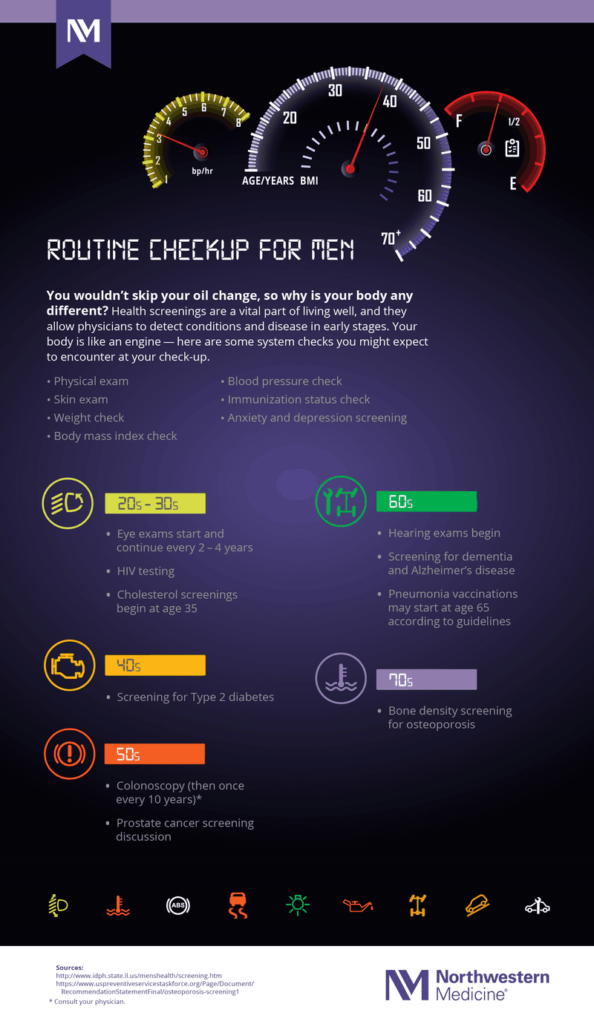Men’s health issues are often overlooked as people age past 60. You see, men are less likely to visit the doctor than women.

As we grow older, one of the biggest questions is whether or not our bodies can keep up with our minds. As we age, many men begin to experience various health concerns that may lead to changes in their lives. Their joints ache more often than they used to, and their ability to stay active becomes more challenging as they age.
According to the CDC, it is estimated that over 480,000 Americans die each year due to age-related diseases. Today’s elderly population has a greater risk of developing chronic conditions like heart disease and cancer earlier than previous generations of seniors.
The most typical reasons for death among men ages 55-85 are heart attacks and cancer. For women, the number one cause of death is heart disease, followed by cancer.
Besides providing answers to questions about specific health problems, this article has also covered general topics related to men’s health in later stages of life, such as sex and sexuality in older age and body image in older age.
Titan Gel For Men Over 60
Titan Gel For Men is a supplement for men over 60 who are looking to increase their levels of testosterone. It has been shown in studies that older men have lower levels of testosterone than their younger counterparts.
Testosterone helps men maintain muscle mass, improve male sexual function, and boost mood and energy levels.Testosterone, the hormone that fuels male sexual function, can be boosted by diet and exercise.
Men should prioritize protein-rich foods like chicken, beef, and fish. They should also focus on carbs like vegetables and oats for energy.
Titan Gel is an anti-aging gel that has been marketed as an effective way to fight the signs of aging. It can be used by all men with our multilanguage Titan Gel reviews available online.
What Happens To A Man Body At 60?
Many people are not aware of what will happen to their bodies when they reach the age of 60. This is because there has been a lack of information about how technology progresses.
People ask themselves what will happen to their bodies at 60 years old. This exact question has been asked throughout time and was even one of the most popular questions during the Victorian Age.
The Victorians were curious about what happens to a man’s body when he reached 60 years old, which is why that question became one of the most popular in their time.
They wanted to know how their bodies would change in this life stage in specific ways, such as losing muscle mass and having a lower metabolism. In today’s society, we still have this curiosity, but it has been
When you reach 60, you will experience the effects of ageing, but there are still ways to maintain your health and body.
Here are some fundamental changes that might happen when you hit 60:
- Your eyesight will slowly start to worsen
- Your ability to hear will slowly start to diminish
- You might feel less sharp in your mind and body
- You might need more help getting around the house or navigating public space
As we age, our bodies start losing muscle mass, and muscle strength decrease from testosterone levels. This is why many people think it is hard to stay active even if they work out regularly.
The good news is that men can make some changes to help maintain their health as they get older.
What Are 5 Male Health Concerns?
This is a question that will most likely come up when you talk about male health. If your colleague is asking for some help, you should be able to answer them with ease. Here are five common male health concerns.
5 Male Health Concerns:
- Heart disease
- High cholesterol
- Prostate cancer
- Diabetes
- High blood pressure
Men are generally in much worse shape than women when it comes to general physical and mental health, so they have more specific health issues. This makes it easier for men to develop certain conditions or diseases because they don’t usually receive women’s care or attention.
→ Read also: Premature Ejaculation – All You Need to Know
Men should focus on staying fit and healthy to avoid many diseases that could lead to the inability to perform the duties they need to carry out. They should also engage in physical activities like weight training which can help prevent muscle degeneration and reduce the risk of osteoporosis-related injuries.
Additionally, they should maintain a healthy diet including fruits and vegetables, and proteins to keep their bodies running efficiently.
Male health problems are unfairly attributed to social issues such as alcohol, smoking, drug abuse, lack of exercise, and obesity. These are unhealthy habits that can cause problems with male health.
In the past, men could get away with these health problems without much issue because no preventive measures prevented them from getting sick. However, with the advent of modern technology and medical research has dramatically improved in recent years. Men can now be more proactive in their health choices by taking care of their diet and staying active.
Alcohol is one of the causes of male health problems: liver disease, cirrhosis, alcohol-related brain damage, and cancer. It’s more common among younger men who drink every day or binge drink on weekends.
At What Age Does Men’s Health Decline?
With all of those unhealthy habits, it is almost impossible to avoid problems with your health. An excellent way to prevent any serious issues from arising is by making sure that you keep a healthy diet and exercise regularly.
As we age, our body changes. Men need to be more cautious as they grow older because the risks increase exponentially with age. At what age does men’s health decline? A study found that it starts at around 18-21 years old and then increases exponentially from there on out.
As men enter their 60s, a myriad of health challenges emerges, encompassing cardiovascular issues and prostate health. This blog post sheds light on the specific health concerns prevalent in this age group, emphasizing the significance of regular check-ups, a balanced diet, and an active lifestyle.
Resources from reputable institutions like the Mayo Clinic and the National Institute on Aging provide valuable insights into managing and mitigating these health issues.

The age-related decline in men’s health is caused by various factors such as genetics, environmental change, lifestyle choices, and genetic disorders that can occur in both genders. With advancing technology and improved life expectancy for both genders, it is expected that the rate of decline will also continue improving.
It is known that a man’s health declines at a certain age. This decline may be due to changes in lifestyle, diet, or genetics.
As men age, their testosterone levels decline, and they have a more challenging time keeping up with their spouses. They also have an easier time getting sick and developing diseases such as cancer and heart disease.
There is a common myth that men’s health declines after age 30. This is not true, and people should not be afraid of ageing. Although it’s hard to believe, men’s health does not decline until after age 50.
In different age ranges, men experience different levels of decline in their health. In the 45-54 age range, for example, men experience a gradual decrease in their sperm production which can cause fertility issues down the road. Men also experience an increase in cardiovascular conditions from their 30s onwards.
Sex And Sexuality In Older Age
Sexuality has always been a complex topic for aging populations, but incredibly challenging is that our bodies change over time. As women age, the clitoris becomes smaller, and vaginal walls thin out. This makes it harder to experience orgasm or pain during sex.
With this in mind, it’s crucial to understand more about sexuality in old age to provide better care for the elderly.
It is harder to fulfill societal expectations of sexual activity. When you’re in your 60s or beyond, you might feel more comfortable with expressing your sexual identity without fear of consequence.
As the population ages, coupled with the ubiquity of social media and online dating services, it becomes increasingly important for adults to find ways to express their sexual identities healthily.
With the ageing population, society has been learning to adapt and change to meet the needs of older people. The social and legal norms around sex and sexuality in old age have evolved. This is due to an increased awareness of sexual health and aging issues.
For instance, there was a time when older people were not allowed to have any sexual relationship with younger partners because of age-gap consent laws. However, with the changing norms, such laws are no longer enforced if both partners are over 60. Additionally, some states provide sex education for seniors as well as counselling on sexuality during later life.
Body Image In Older Age
Aging is one of the most important life changes that can happen to us, and it can bring a lot of changes to our physical appearance. For some people, the differences are apparent – wrinkles, weight gain, grey hair. For others, they are less pronounced – smaller eyes or narrower faces.
Whether you are struggling with these changes or not, it’s essential to understand that there is no single “right” way to age. There are many different ways of ageing gracefully and beautifully. Aging is about balance and accepting who you are today as well as which you were yesterday.
Body image issues are common in older men and women. Many people are worried about their body changes over time. Some also find it difficult to accept changes brought on by aging. However, there is good news for those struggling with these issues – they can make lifestyle changes to improve their body image.
Lifestyle factors, such as eating healthy food and staying active, can go a long way in improving body image in older people.
Recent studies show that the trend of getting plastic surgery and other procedures is not going to decline anytime soon, which somebody image specialists think could be making some people feel worse about their age.
Many older adults also suffer from depression and anxiety. This can make it difficult for them to live in society because they often feel like others don’t want them around.
Body image in older age is an issue that people cannot ignore. We must find ways to combat this issue and find happiness within ourselves regardless of age or physical appearance.
We can do things at home or work on ourselves outside of selling our bodies for money. These include taking care of our skin, exercising, eating healthy food, and refocusing on what’s important in life- friendship and family- both of which are known for improving your mood.